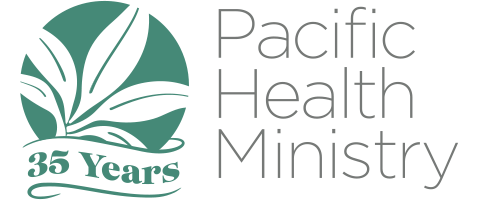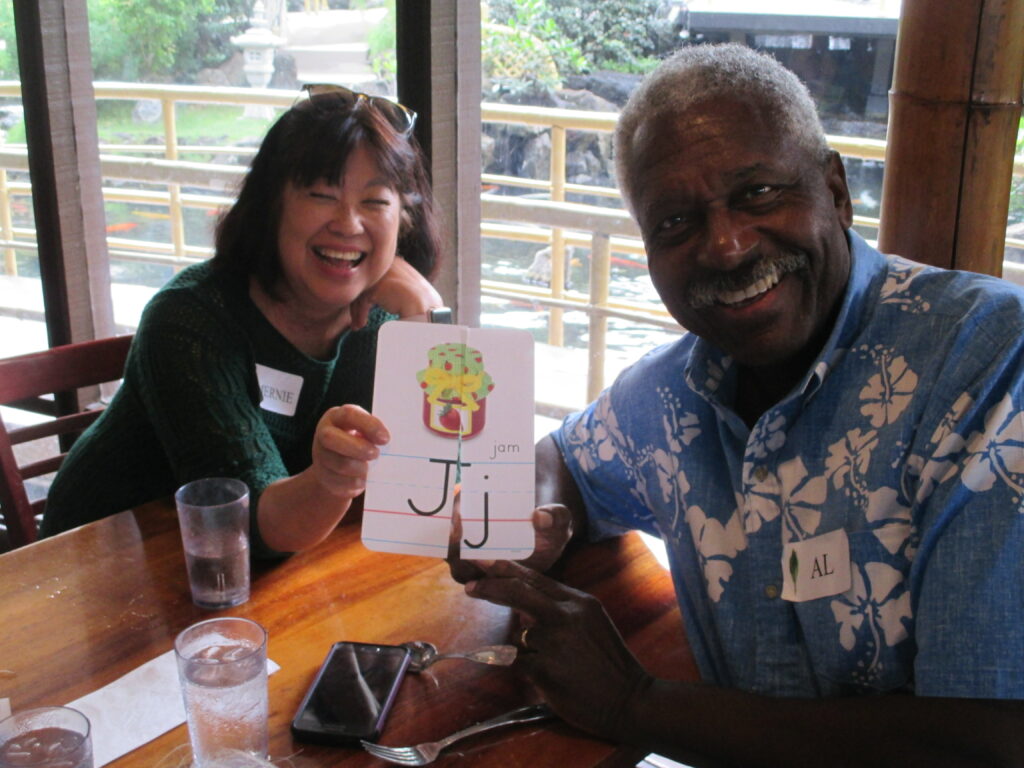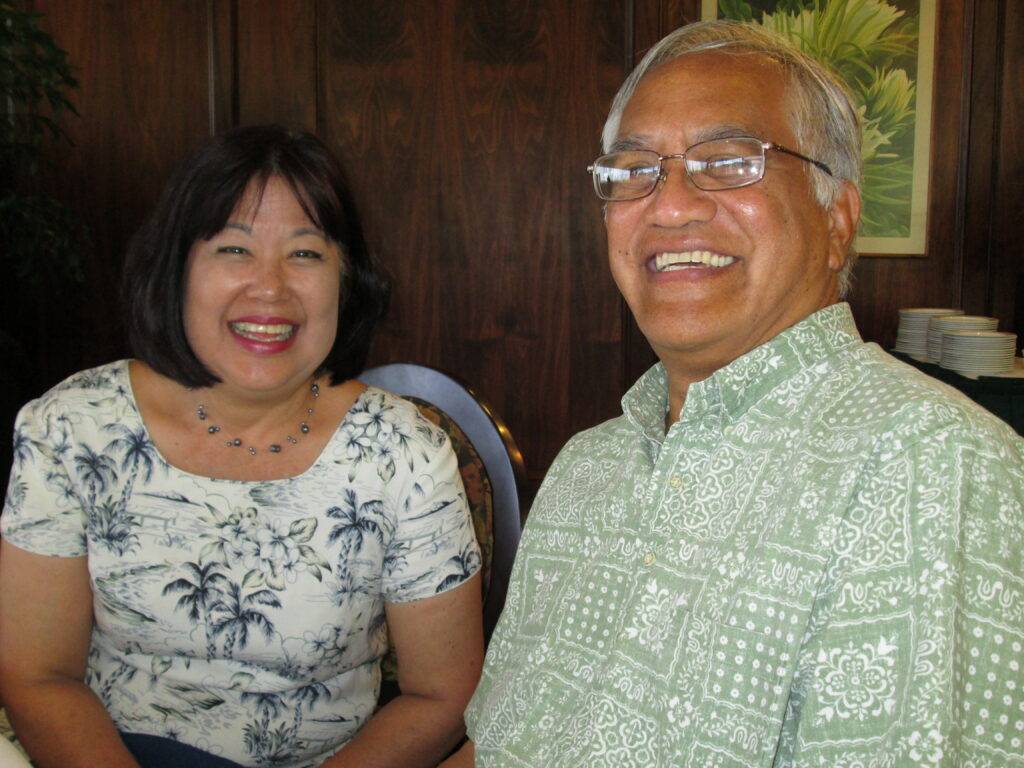“Speaking as a licensed clinical social worker, we’ve had to fight some of the same fights as chaplains to prove that we belong and we’re important. Finally, this western society has come to see that caring for patients is a whole lot more than completing technical/medical tasks.”
– Mernie Miyasato-Crawford
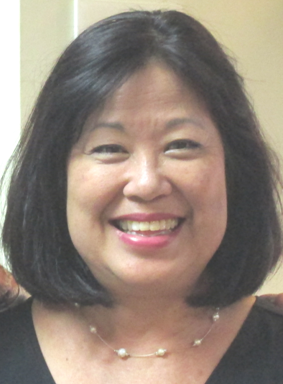
The value of spiritual care in hospital ministry and the contribution of social workers in healthcare cannot be overstated. Yet, this wasn’t always the prevailing sentiment. Mernie Miyasato-Crawford spent four decades as a healthcare social worker at Kuakini Medical Center and Tripler Army Medical Center, during which she witnessed the growth and evolution of Pacific Health Ministry. She also witnessed the emergence of chaplaincy in healthcare and personally experienced its immense value.
Native to Hawai‘i, Mernie’s career took her to the mainland for a couple of years before returning to Honolulu. Upon her return, she accepted the position of Medical Social Worker at Kuakini Medical Center, one of the founding institutions of Pacific Health Ministry.
As the idea of PHM came to fruition, it became a priority to have representatives from member institutions on the organization’s board. The seat for Kuakini became vacant as the hospital went through an extensive reorganization in the administrative department and the opportunity was presented to Mernie to become a part of PHM’s Board of Directors. Now 30 years later, she is still involved and serving as PHM’s Board President.
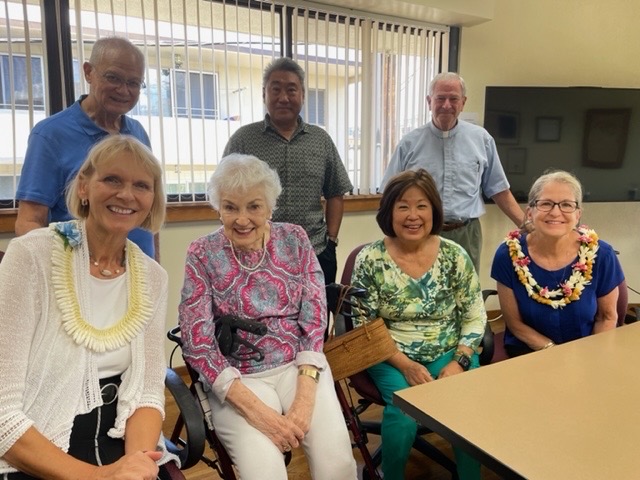
Before the introduction of Pacific Health Ministry and Clinical Pastoral Education, chaplaincy in healthcare operated in a vastly different manner. Hospitals and clergy had free reign, without clear guidelines regarding patient confidentiality or therapeutic rapport. Recognizing the need for a more respectful and effective approach, PHM sought to revamp the way chaplaincy was carried out.
Mernie was deeply moved by Chaplain Kiyo Itokazu, who was the first chaplain contracted by Kuakini. Prior to the establishment of Pacific Health Ministry, Mernie had not yet experienced the profound impact that chaplaincy could have. She reflected, “I was lucky enough that the first PHM contracted minister at Kuakini was Chaplain Itokazu. He helped cement for me how important the work is when done properly, with the right training and patient-centered focus. It’s not about engendering someone’s alliance into your faith. It’s about being part of a health care team to help in a holistic way as people face crises such as death and have a need for healing. I’ll never forget that experience because he taught me that.”
In 1999, the Sacred Falls accident occurred in which eight hikers were killed and 50 others were injured. While Kuakini was not the designated trauma center during the incident, the impact was so profound that all hospitals across Oahu were called in. “Hospital chaplains are unique in the fact that they can interact as a team, navigate healthcare information, medical jargon, and pull in resources to connect to a wider body of the community and network of support. I will never forget the value that PHM provided during that traumatic event.”
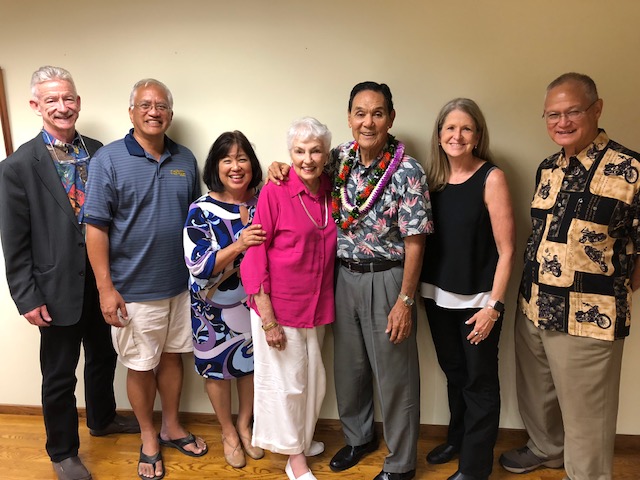
Chaplains wield an equally significant influence on both patients and medical personnel. Over time, the staff naturally found themselves approaching the chaplains. During the COVID-19 pandemic, chaplains continued to host gatherings called “Tea for the Soul” to promote self-care among the staff. These sessions provided a safe space for staff to de-stress and share their experiences. “Both my team at Kuakini and Tripler benefited greatly from these services. It took a considerable amount of time to normalize and gain a comprehensive understanding of the fact that chaplains are an integral part of the healthcare team, catering to the needs of both patients and staff.”
When prompted to reflect on the significance of Pacific Health Ministry’s work having seen it grow into the organization it is today, Mernie shared, “It’s been gratifying!To have our model of care is really unique and a reflection of Hawai‘i. “Speaking as a licensed clinical social worker, we’ve had to fight some of the same fights as chaplains to prove that we belong and we’re important. Finally, this western society has come to see that caring for patients is a whole lot more than completing technical/medical tasks.”
